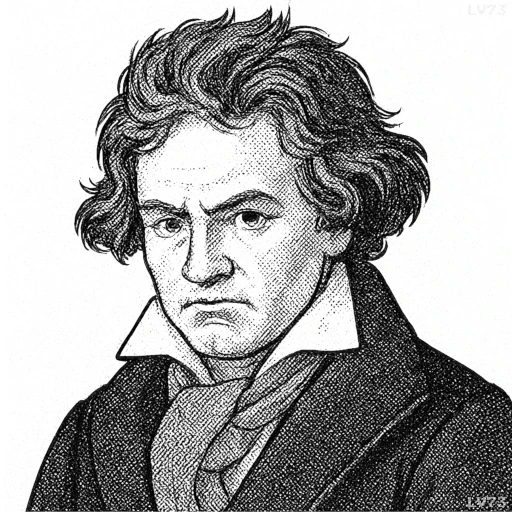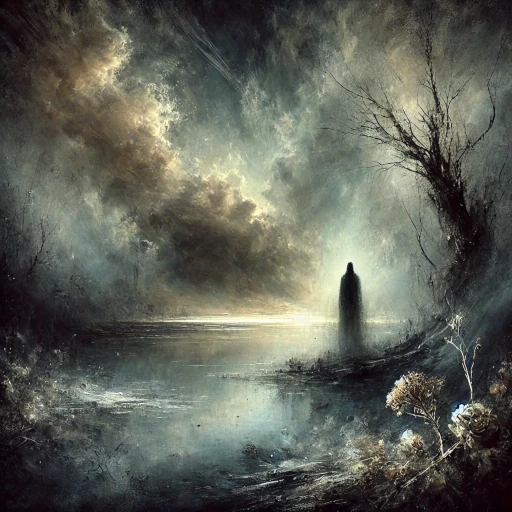“I joyfully hasten to meet death. If it come before I have had opportunity to develop all my artistic faculties, it will come, my hard fate notwithstanding, too soon, and I should probably wish it later – yet even then I shall be happy, for will it not deliver me from a state of endless suffering?”

- December 16, 1770 – March 26, 1827
- Born in Germany (Holy Roman Empire)
- Composer, pianist
table of contents
Quote
“I joyfully hasten to meet death. If it come before I have had opportunity to develop all my artistic faculties, it will come, my hard fate notwithstanding, too soon, and I should probably wish it later – yet even then I shall be happy, for will it not deliver me from a state of endless suffering?”
Explanation
This quote reveals the deep anguish Beethoven experienced as he faced both his personal and professional struggles, particularly the devastating progression of his deafness. The intensity of his emotional state is evident, as he expresses a conflicted desire for death—on one hand, he yearns to escape his suffering, yet on the other, he is reluctant to leave this world before fully realizing his artistic potential. Beethoven’s words reflect a complex understanding of life and death, where his need to fulfill his artistic mission outweighs even his desire for peace. His art became both his salvation and his torment, something he could not let go of despite the immense personal cost.
Beethoven’s contemplation of death underscores the intense psychological toll that his condition took on him. His struggle with deafness, which prevented him from hearing the very music he composed, likely exacerbated feelings of isolation and despair. Yet, despite this, his belief in the importance of his artistic expression pushed him to continue creating. This emotional vulnerability in the face of personal suffering adds a layer of humanity to Beethoven’s legacy, reminding us that even great genius is often born from profound struggle.
In modern times, this quote can resonate with individuals who grapple with both personal suffering and the desire to accomplish something meaningful in life. Many people facing chronic illness, mental health challenges, or other significant obstacles may relate to the feeling of being caught between the desire for release from pain and the drive to fulfill one’s purpose. Beethoven’s experience is a poignant reminder that even in the face of despair, creativity and purpose can provide a profound reason to continue. Today, his words speak to the broader experience of human resilience, the complexity of suffering, and the transformative power of artistic expression.
Would you like to share your impressions or related stories about this quote in the comments section?

